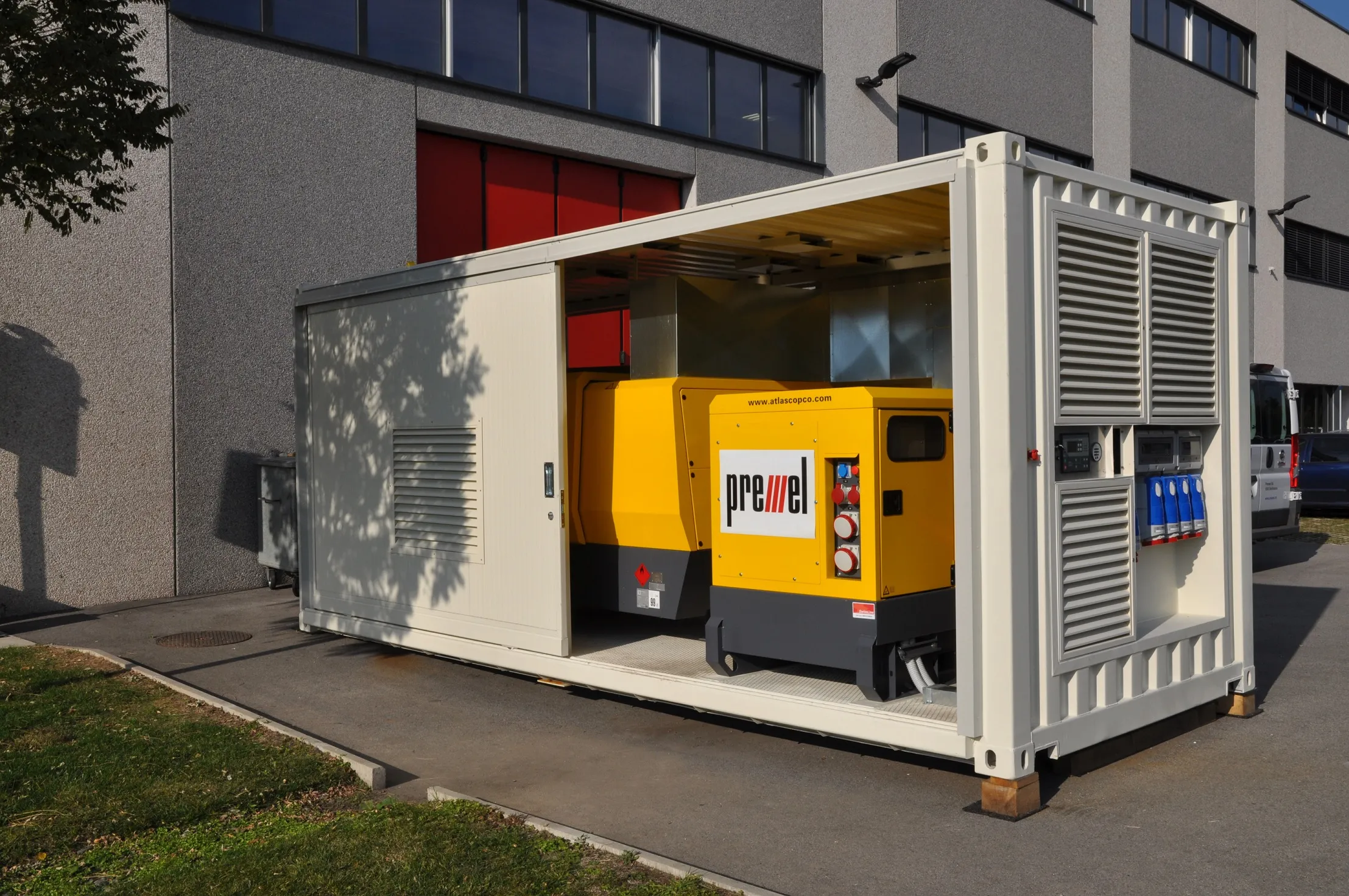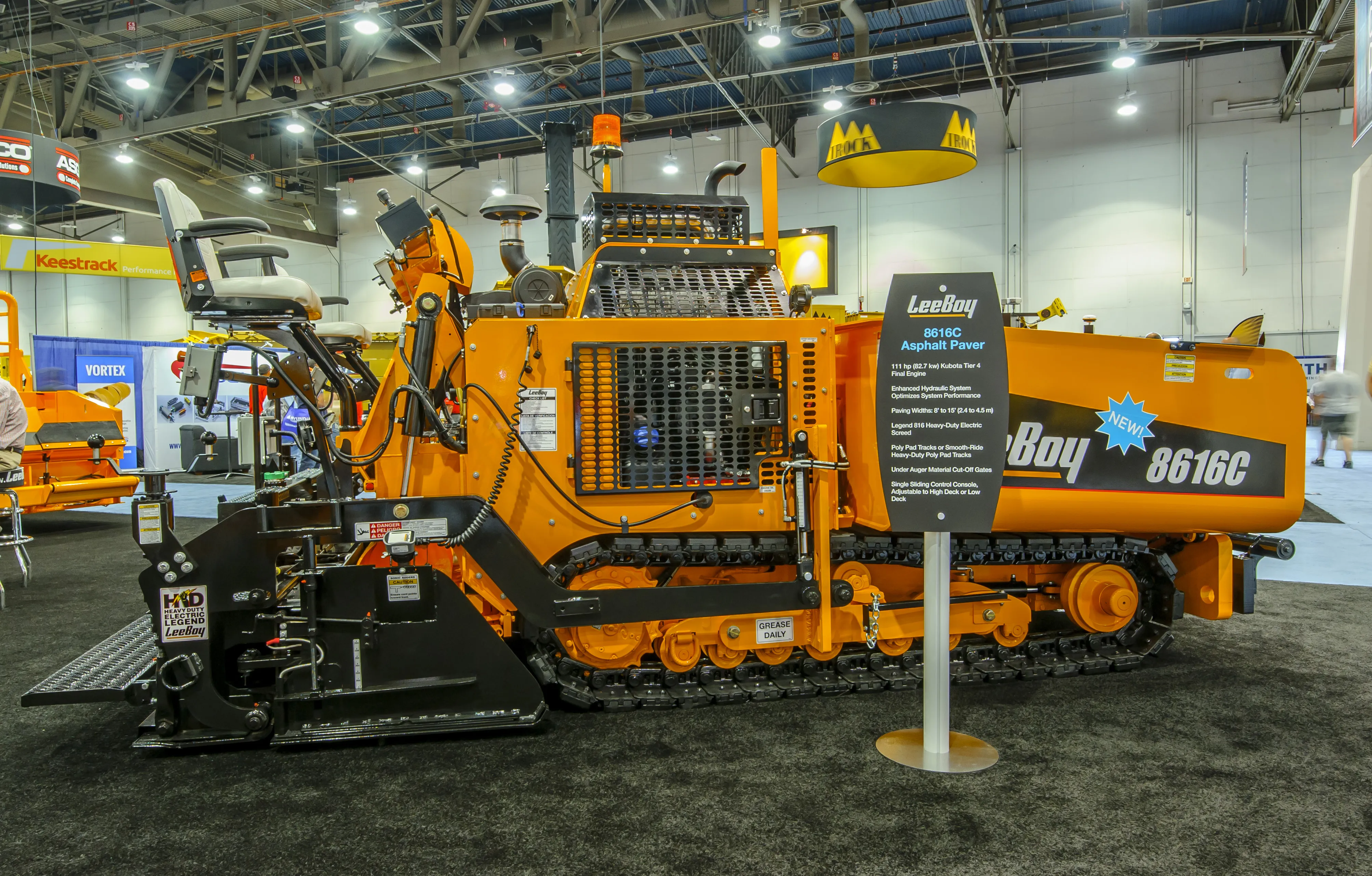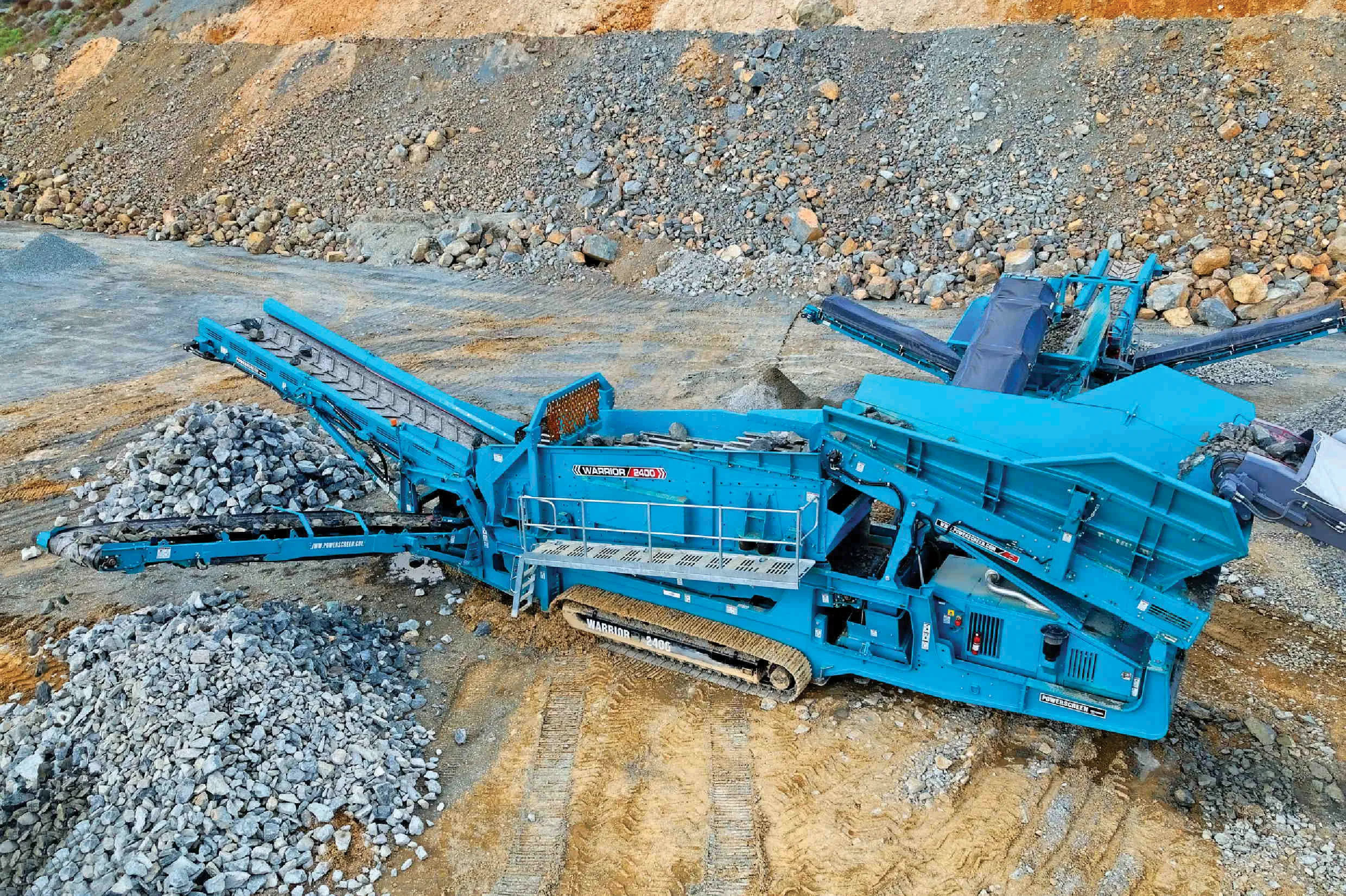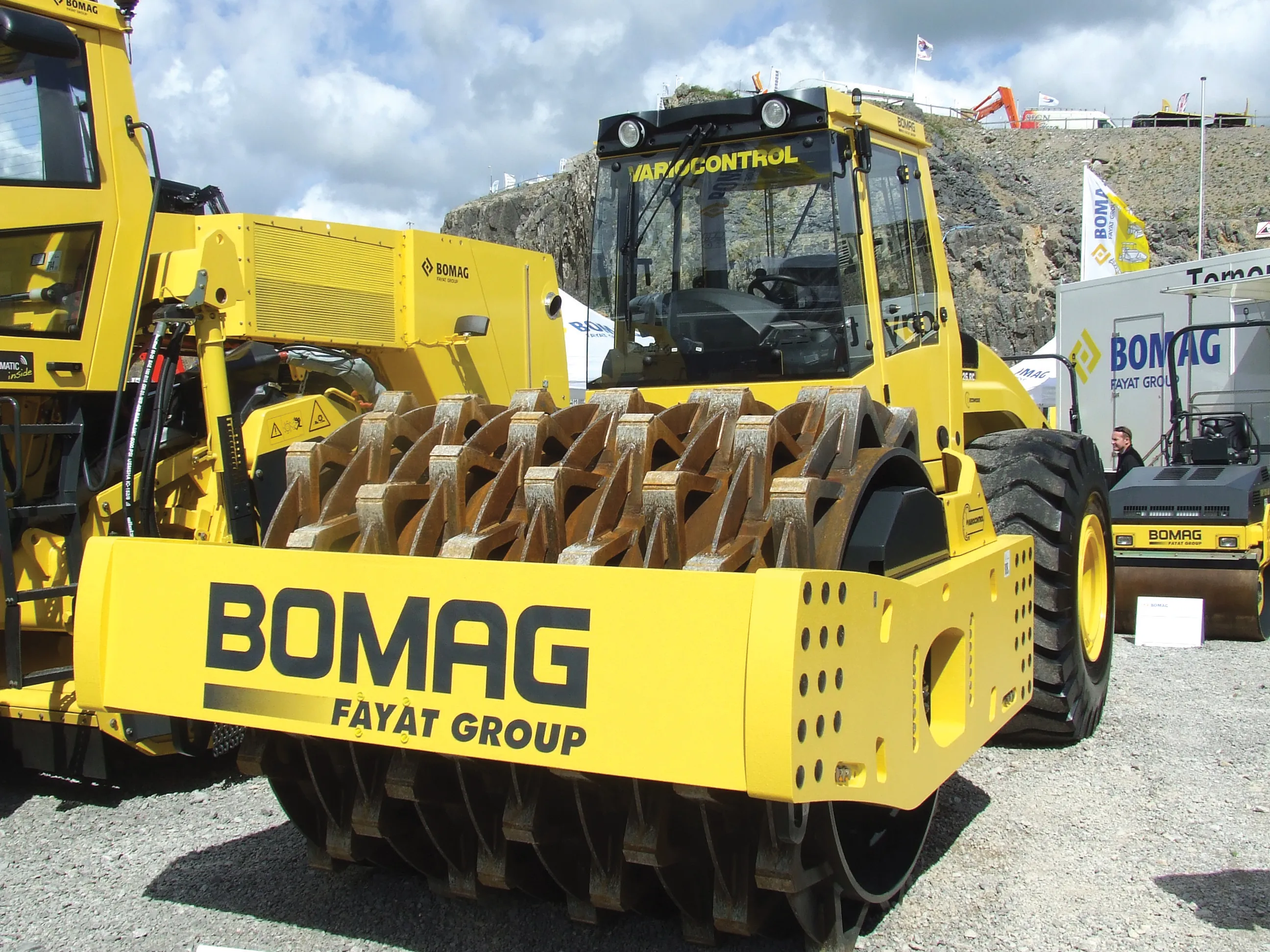
A new mobile power system offers independent electricity and compressed air supply for construction sites. The power package has been developed by Swiss firm Premel and comes enclosed in a standard container, fitted with a generator and a compressor from
Typical applications for the mobile power stations include tunnel construction sites. For use in operations with a risk of explosions, the system can also be equipped with a spark arrestor. Each container measures 6.1m in length by 2.35m wide and 2.40m high, with a weight of around 9tonnes. This allows easy transport by truck, while for loading the container has forklift receivers in the base.
The mobile power stations are equipped with Atlas Copco units, a QAS 60 generator and an XAHS 237 compressor. The generator provides 60kVA, with power from a Perkins diesel while the compressor is powered by an MTU engine. According to the supplier, the generator can be overloaded by 300% for up to 20 seconds with no problems. The compressor provides up to 14m3/min at 12bars.
Premel builds the container systems, including the generator, compressor, exhaust and fuel system, at its Bellinzona manufacturing facility and tests them on-site.









